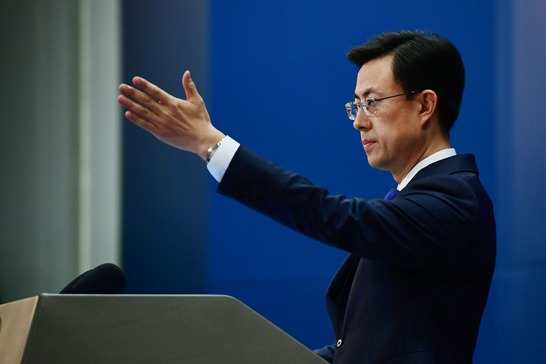Fukushima move draws more critics


A decision by Japan to dump into the sea tons of contaminated water from the Fukushima nuclear power plant came under renewed opposition from environmental groups at a virtual international forum on Tuesday.
The groups, in a meeting coinciding with the 47th Session of the United Nations Human Rights Council, highlighted the impact on marine ecology and people's health from a release of the toxic water.
On April 13, the Japanese government announced it would discharge the water from the tsunami-devastated Fukushima plant into the Pacific Ocean, in a phased release starting within two years.
Xie Yuhong, vice-chairman of the All-China Environment Federation that hosted the event, said the online meeting was part of efforts to protect the environment and human health.
"We are dedicated to environment protection and connecting nongovernmental organizations for them to communicate," she said. "So we organized the event to gather international organizations to call on all sectors in Japan to focus on marine environment."
Shahriar Hossain, a member of the Steering Committee of the International POPs Elimination Network, said the release of radioactive water from the stricken nuclear plant would constitute a major form of marine pollution.
"Once in seawater, radiation can hurt ocean animals in several ways by killing them outright or passing radioactive material up the food chain," he said.
Cancer risk
"Radiation exposure can slightly increase a human's lifetime risk of developing cancer or kidney problems."
He said that people, now they are becoming aware of the threat, should "raise our voices to protect marine life and ban contaminated nuclear water dumping in bodies of water".
Song Ju-hee, of the Korean Federation of Environment Movement in South Korea, said civil society in the country has been calling on the government to stop all imports of Japanese marine products, while urging the authorities in Seoul to work on countermeasures to protect the domestic fishing industry.
"Civil society requires more effective and active action from the government," she said.
Xu Nan, a member of the Shanghai Rendu Ocean NPO Development Center in China, said that, as far as she knew, about 200 organizations in China have publicly opposed Japan's decision for the ocean release of the toxic water.
"Although we are from different nations, we share the same oceans. It is not responsible for a country to treat oceans as dumps," she said.
Xie expressed the hope that Japan will abandon the controversial plan.
"We hope Japan carry out in-depth research on various safe disposal methods in a responsible attitude to its own people and the international community," she said.
"We also hope the country will disclose information and strictly abide by international standards. We would like to see more partners from the international community join in protecting oceans and public health."
































